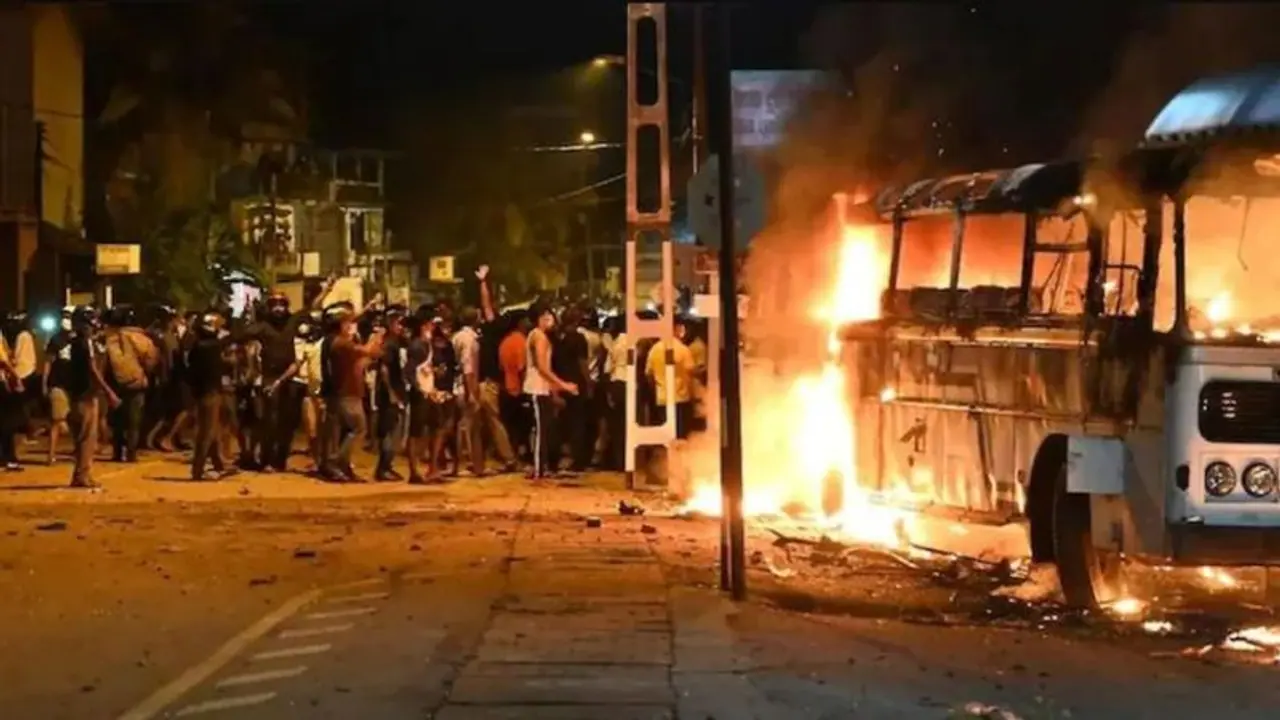Due to a lack of foreign cash, the debt-ridden government, which has been led by Rajapaksa and members of his family since 2019, is struggling to pay for imports of gasoline and other supplies, resulting in hours-long power outages and a shortage of basics.
Sri Lankan President Gotabaya Rajapaksa fired his brother as finance minister and sought a new central bank governor, while protesters gathered outside the residences of senior parliamentarians as the country's economic crisis worsened. Due to a lack of foreign cash, the debt-ridden government, which has been led by Rajapaksa and members of his family since 2019, is struggling to pay for imports of gasoline and other supplies, resulting in hours-long power outages and a shortage of basics.

Here are top highlights:
A group of Sri Lankan governing party lawmakers called Tuesday for the appointment of an interim government, warning that a failure to do so would lead to violence and anarchy, as demonstrators continued to demand the resignation of President Gotabaya Rajapaksa over the country's worst economic crisis in decades. The lawmakers urged the speaker of Parliament to lead discussions with all parties to select an interim prime minister with the support of a majority of legislators.
Parliament Deputy Speaker Ranjith Siyambalapitiya has stepped down, the Colombo Gazette reported. He has informed President Gotabaya Rajapaksa about his resignation. The resignation comes after the Sri Lanka Freedom Party (SLFP) quit the government and decided to be independent in Parliament.
Newly-appointed finance minister of Sri Lanka Ali Sabry resigned from the post within 24 hours of his appointment. Sabry has also reportedly offered to resign from his national list MP post so that President can appoint a suitable person to handle the situation outside the current Parliament.
The opposition in Sri Lanka rebuffed President Rajapaksa's offer to join a unity government as "nonsense," instead demanding his resignation due to the country's mounting food, fuel, and medication shortages.
- Following widespread calls for the Rajapaksas to be deposed, the president's media office announced the appointment of four new ministers "to guarantee parliament and other functions may be carried out in a legitimate way until a complete Cabinet can be sworn in."
- Sri Lankan President Gotabaya Rajapaksa informed top party members today that he will not step down as President of Sri Lanka, but is willing to give over the administration to whatever party can demonstrate a majority of 113 seats in Parliament.
Also Read | Sri Lanka economic crisis: Central Bank Governor resigns, Prez invites parties to accept cabinet posts
- Ajith Cabraal, the country's central bank governor, stood down on Monday after the government resigned to pave room for a new administration to address the country's spiralling economic crisis.
- Because of the country's serious medicine scarcity, Sri Lanka has declared an emergency health condition as of Tuesday.
- As the country's economic crisis deepened, demonstrators in Colombo defied a statewide curfew by holding many small, nonviolent rallies, while police deployed tear gas to disperse student protesters in Kandy, the country's centre city.
Also Read: Sri Lanka economic crisis deepens: Late-night protests, firing and curfew
- The two hashtags, #GoHomeRajapaksas" and "#GotaGoHome", have been trending on Twitter and Facebook in Sri Lanka, presently battling severe shortages of essentials and intense price rises and crippling power cuts in its most painful downturn.
- The ongoing problem, worsened by the COVID-19 pandemic, which has impacted tourism and remittances, is the product of economic mismanagement by successive governments.
